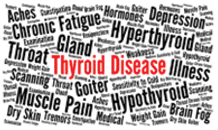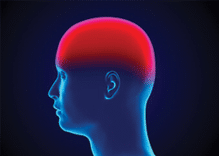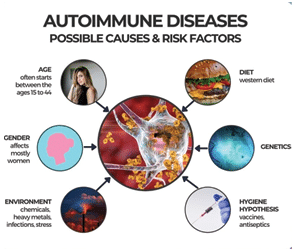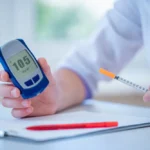In this article, we explore the potential medical reasons behind weight loss struggles and learn how to take the necessary steps to overcome these hurdles and achieve your goals.
Introduction: Typical Weight Loss Issue:
Janet S. is a long-term patient of ours. She has been on various diets for years but despite her ongoing struggle, her weight has not gone down. About six months ago after reading all the news on GLP-1 medication, she started taking Ozempic (Semaglutide) to lose weight. Janet followed the protocols faithfully including taking the injections weekly as prescribed every week along with a healthy diet and exercise routine. But her weight remained at the same 160-pound level it was six months ago.
The question she asked us was “Why is the Semaglutide not working and what should I do next to lose weight? For us to help Janet, we needed to examine the root cause of her health issues. This included a DNA test, blood, stool, and urine testing along with a detailed examination of her Thyroid. The good news is that after we finished our testing and recommended and implemented treatments, we were able to help Janet lose over 20 pounds! This is a solvable problem, but we needed her cooperation as a patient to make it succeed.
Does this sound like you?
 Despite following a healthy diet and exercise routine is your weight unchanged. It can be frustrating when the scale does not budge, leaving you wondering, “Why am I not losing weight?” In some cases, medical conditions could prevent you from reaching your weight loss goals. In this blog post, we will discuss some common medical reasons for weight loss resistance and provide the next steps to help you overcome these obstacles.
Despite following a healthy diet and exercise routine is your weight unchanged. It can be frustrating when the scale does not budge, leaving you wondering, “Why am I not losing weight?” In some cases, medical conditions could prevent you from reaching your weight loss goals. In this blog post, we will discuss some common medical reasons for weight loss resistance and provide the next steps to help you overcome these obstacles.Medical Steps Needed for weight loss when Nothing is Working.
Learn below the necessary issues, conditions, and treatments, step by step to overcome these hurdles and achieve your goals.
Hypothyroidism TRH Test to Address Weight Loss Issues
 Hypothyroidism is a medical condition where your thyroid gland does not produce enough thyroid hormones. These hormones play a crucial role in regulating your metabolism. A slow metabolism can make it difficult to lose weight, even with a healthy lifestyle.
Hypothyroidism is a medical condition where your thyroid gland does not produce enough thyroid hormones. These hormones play a crucial role in regulating your metabolism. A slow metabolism can make it difficult to lose weight, even with a healthy lifestyle.Next Steps: Consult your doctor to check your thyroid hormone levels. If you are diagnosed with hypothyroidism, they may prescribe medication to help regulate your thyroid function, which can improve your weight loss efforts.
Polycystic Ovary Syndrome (PCOS) Test to Address Weight Loss Issues
This unfortunately is a hormonal disorder that affects women of reproductive age. It can cause insulin resistance, leading to weight gain and difficulty losing weight. Next Steps: If you suspect you have PCOS, consult your healthcare provider. They may recommend lifestyle changes, medication, or other treatments to help manage the condition and improve weight loss results.
Cushing’s Syndrome Test to Address Weight Loss Issues
Cushing’s syndrome is a rare condition caused by excessive cortisol production. High cortisol levels can lead to weight gain, particularly around the abdomen, and make weight loss challenging. Next Steps: If you think you may have Cushing’s syndrome, talk to your doctor. They can perform tests to diagnose the condition and recommend appropriate treatment options.
Sleep Apnea Test to Address Weight Loss Issues
 Sleep apnea is interrupted breathing during sleep. It can lead to poor sleep quality, which may contribute to weight gain or hinder weight loss efforts. Next Steps: If you suspect you have sleep apnea, consult a healthcare professional. Proper treatment, such as using a CPAP machine, can improve sleep quality and help support weight loss.
Sleep apnea is interrupted breathing during sleep. It can lead to poor sleep quality, which may contribute to weight gain or hinder weight loss efforts. Next Steps: If you suspect you have sleep apnea, consult a healthcare professional. Proper treatment, such as using a CPAP machine, can improve sleep quality and help support weight loss.Medications Review to address Weight Loss Issues
 Certain medications, including antidepressants, antipsychotics, and steroids, can cause weight gain or make it difficult to lose weight. Next Steps: If you think your medication might be affecting your weight loss efforts, speak with your doctor. They can help determine if a change in medication is appropriate for your situation.
Certain medications, including antidepressants, antipsychotics, and steroids, can cause weight gain or make it difficult to lose weight. Next Steps: If you think your medication might be affecting your weight loss efforts, speak with your doctor. They can help determine if a change in medication is appropriate for your situation.Other Reasons needed to be addressed to get to the root cause of weight loss issues.
 Obesity treatment often fails because the methods used to defeat it. No individual can conquer obesity overall by using just diets, willpower, and effort. Obesity is a disorder of abnormal brain chemistry and needs to be treated as such. It is due to many factors, which are outlined below:
Obesity treatment often fails because the methods used to defeat it. No individual can conquer obesity overall by using just diets, willpower, and effort. Obesity is a disorder of abnormal brain chemistry and needs to be treated as such. It is due to many factors, which are outlined below:- Electropause– changes in brain metabolism, rhythm, and power. When brain metabolism decreases, individuals are not able to burn calories effectively. Brain mapping studies show a 30% reduction in brain metabolic rate in the average obese individuals who have only one health problem. The reduction percentage is even higher with those obese individuals who develop multiple medical problems including menopause, depression, and hypertension.
-
 Psychopause– emotional factors can play a role in what foods we choose to eat. Many individuals do not realize how often they cheat on their diet by eating junk food and foods high in salt or sugar to aid their ailing emotions. Memory and attention disturbances also cause individuals to make the wrong choices, because when these faculties fail, anxiety and stress usually follow resulting in the individual finding comfort in eating junk food.
Psychopause– emotional factors can play a role in what foods we choose to eat. Many individuals do not realize how often they cheat on their diet by eating junk food and foods high in salt or sugar to aid their ailing emotions. Memory and attention disturbances also cause individuals to make the wrong choices, because when these faculties fail, anxiety and stress usually follow resulting in the individual finding comfort in eating junk food. - Pinealpause– the loss of melatonin with age results in the loss of serotonin, which is the main cause of carbohydrate cravings.
-
 Thyropause– the loss of thyroid hormone can alter metabolic rate.
Thyropause– the loss of thyroid hormone can alter metabolic rate. - Parathyropause– the loss of parathyroid hormone along with the loss of calcitonin, can affect bone density and result in a malnourished state, which can alter food selection. When a malnourished state occurs, we crave foods that are unhealthy. We are more likely to grab French fries, potato chips, sweets, pasta, etc.
-
 Thymopause– the loss of immunity causes increased infection, which challenges the brain and results in brain trauma. Once the brain is injured, it craves carbohydrates. This results in the individual not being able to manage carbohydrates and food selections properly.
Thymopause– the loss of immunity causes increased infection, which challenges the brain and results in brain trauma. Once the brain is injured, it craves carbohydrates. This results in the individual not being able to manage carbohydrates and food selections properly. -
 Adrenopause– the loss of adrenal hormone results in an increase in the fight or flight response, which causes individuals to crave caffeine and carbohydrates
Adrenopause– the loss of adrenal hormone results in an increase in the fight or flight response, which causes individuals to crave caffeine and carbohydrates -
 Somatopause-the loss of growth hormone results in a decreased ability of the body to convert muscle to fat, the loss of muscle and bone, and the loss of physical strength.
Somatopause-the loss of growth hormone results in a decreased ability of the body to convert muscle to fat, the loss of muscle and bone, and the loss of physical strength. - Gastropause– the slowing down of nutrient absorption by the entire gastrointestinal tract resulting in a malnourished state. Obese individuals are suffering from malnutrition because of the nutrient-deficient foods they binge on. When the body is hungry, it craves nutrients, however, the obese individual thinks it is craving carbohydrates and junk food. Therefore, these individuals end up with many deficiencies of vital nutrients such as amino acids, and trace elements that result in their continued recycling of craving the wrong foods.
-
 Andropause– the loss of testosterone in male’s results in abdominal obesity initially, and then total body obesity as muscle turns to fat.
Andropause– the loss of testosterone in male’s results in abdominal obesity initially, and then total body obesity as muscle turns to fat. - Menopause– the loss of estrogen, progesterone, and testosterone results in 10 pounds of weight gain per decade beginning at about age 30 and is variable with every individual. Estrogen is an intensive, energizing compound that works like dopamine to stimulate the brain and burn calories. Progesterone reduces anxiety and improves sleep, which diminishes cravings for carbohydrates. Testosterone, like estrogen, is also a calorie burning intensive hormone.
- Vasculopause– changes in blood flow affect the brain, which results in a reduction of metabolic rate.
-
 Osteopause-changes in bone density have an impact on overall health and emotional stress that effect dietary selection. When individuals become frail and feeble, they lose motivation for a healthy lifestyle and begin to make the wrong food choices. Ironically, obesity can help protect osteoporosis again.
Osteopause-changes in bone density have an impact on overall health and emotional stress that effect dietary selection. When individuals become frail and feeble, they lose motivation for a healthy lifestyle and begin to make the wrong food choices. Ironically, obesity can help protect osteoporosis again. -
 Pancreopause– changes in insulin and glucose tolerance result in carbohydrate cravings. Insulin may go up and glucose tolerance goes down. These individuals become pre-diabetic which causes carbohydrate cravings.
Pancreopause– changes in insulin and glucose tolerance result in carbohydrate cravings. Insulin may go up and glucose tolerance goes down. These individuals become pre-diabetic which causes carbohydrate cravings. - Genopause-individuals born with genetic deficits of serotonin or dopamine will be prone to carbohydrate cravings and obesity. Individuals with genetic deficiencies will have more alienation, antisocial behaviors, social phobia, and more carbohydrate cravings.
Conclusion:
The best way to get to the root cause of your lack of weight loss is to have your physician address all these issues and get to the root cause of your problem. Weight loss can be a complex process, and medical conditions may play a role in making it more difficult. If you are struggling to lose weight, it is essential to consult your healthcare provider to identify and address any underlying medical issues. With the proper guidance and support, you can overcome these challenges and achieve your weight loss goals.
To schedule an in person on Tele-medicine appointment
please call our office at 1-212-794-8800 or email us at info@patientsmedical.com. We look forward to hearing from you
Our medical center in New York City.
Patients Medical PC 1148 Fifth Avenue, Suite 1B New York, NY 10128
About Patients Medical
WEIGHT LOSS CLINIC NEAR ME
 PatientsMedical.com is headed by Dr. Rashmi Gulati, MD who is a board-certified physician with over 20 years of integrative, functional and internal medicine experience. Patients Medical is a holistic wellness center dedicated to helping its clients discover health and rediscover vitality. Their physicians combine the best of conventional and holistic medicine with state-of-the-art equipment to provide comprehensive care and treatment to their patients. They focus on the root causes of secondary medical conditions, integrating modern medicine, holistic practices, and natural supplements to fast-track healing and prevent disease. Every year, thousands of existing and new patients continue to visit the center, seeking an alternative medical approach to a variety of health issues.
PatientsMedical.com is headed by Dr. Rashmi Gulati, MD who is a board-certified physician with over 20 years of integrative, functional and internal medicine experience. Patients Medical is a holistic wellness center dedicated to helping its clients discover health and rediscover vitality. Their physicians combine the best of conventional and holistic medicine with state-of-the-art equipment to provide comprehensive care and treatment to their patients. They focus on the root causes of secondary medical conditions, integrating modern medicine, holistic practices, and natural supplements to fast-track healing and prevent disease. Every year, thousands of existing and new patients continue to visit the center, seeking an alternative medical approach to a variety of health issues.In addition, Patients Medical provides access to over 15,000 affordable supplements on their affiliated website: www.MySupplements.Store





